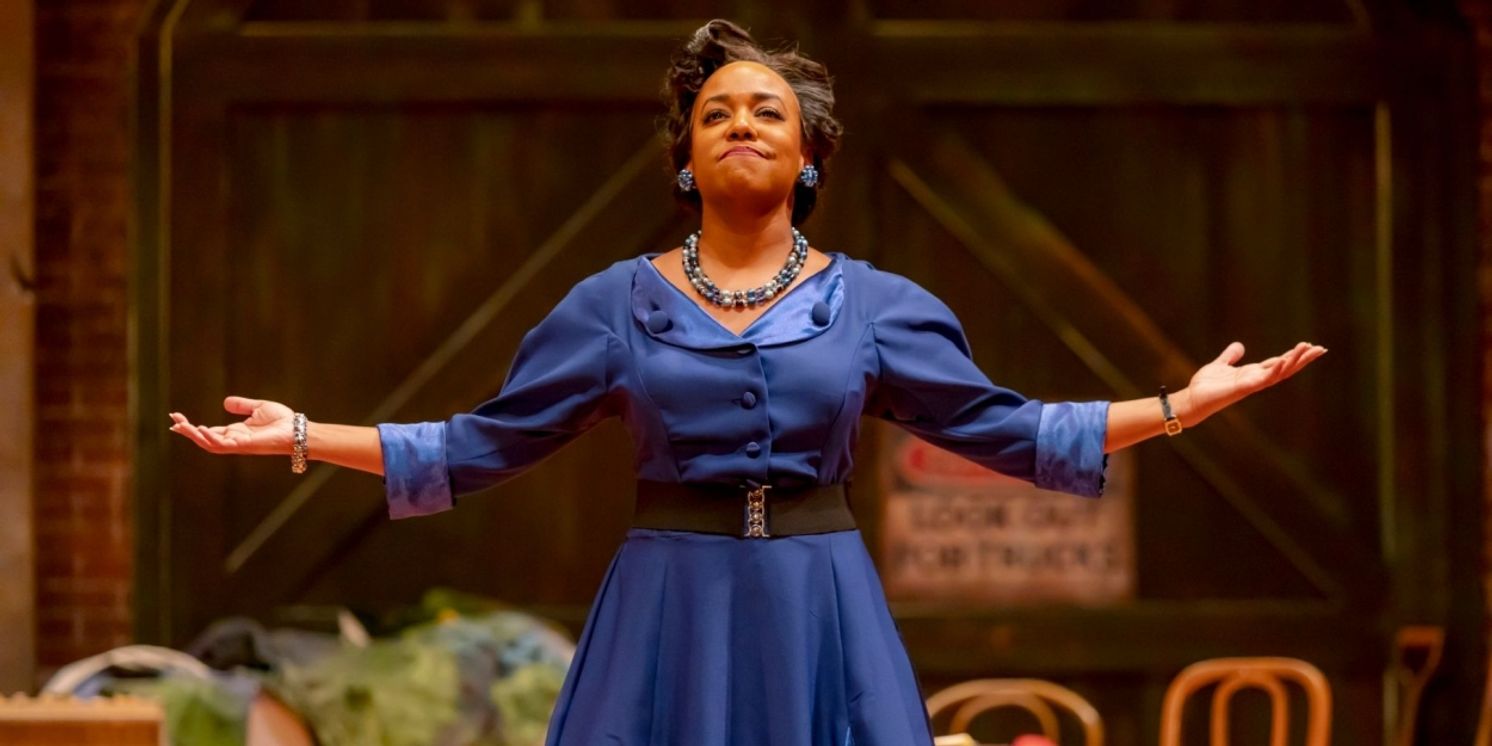Review: TROUBLE IN MIND at Cincinnati Shakespeare Company
This necessary tale about truth and dignity runs through June 3rd.

A ghost light haunts the stage as Billie Holiday music plays in the background. For a play layered in time and space, it is immediately recognizable when and where we are as an audience. Trouble in Mind features a cast and crew putting on a Broadway play in the 1950s, which would be present day from the time it was written. For Alice Childress, this was her first full-length play. Originally set for a Broadway run, however, Childress refused to change the ending of the show as she was pressured to do so. Considering the messages of the play, this said pressure was rather ironic.
Trouble in Mind made its Broadway premiere in 2021, 66 years after it was produced off-Broadway at Greenwich Mews Theatre. Cincinnati Shakespeare Company is known for its unique takes on classic stories and reviving them for a fresh audience, and this play is no exception. Known for its general themes of racism and sexism from a black perspective, the play eerily reflects a modern culture and language despite being written several decades ago. Manipulative tactics are used strategically by the characters, performative allyships are shattered, and false dignity is stripped for raw truth.
Director Torie Wiggins presents Trouble in Mind with much depth and sincerity. She proves that flashiness isn’t needed to keep an audience attentive, as the character work and text detail prove to be enough along with her subtle adjustments. From the trickling introductions of each character displaying their stark personalities, one is immediately gripped into the world of the play. Once everyone is assembled and the first rehearsal begins, each role begins to unfold: Wiletta Mayer (Candice Handy) is an aging actress with a hardened heart who has always felt she needed to mask herself in order to appease her white superiors in the industry. Meanwhile, Judy Sears (Courtney Lucien) resembles the nervous and naive youth at her first job who has the misconstrued belief that everyone is the same no matter what their race. They, along with the rest of the cast, are helmed by director Al Manners (Justin McCombs).
By having the first act be one complete, uncut scene, the play feels akin to A Chorus Line, another show about the difficulties of show business that is told straight through. There are exactly two breaks within the show: One at intermission, and one halfway into the second act to break it into two parts over a single day that takes place some time after act one. It’s within the beats that create the real jolts throughout the show, and the audience has to go along with the events as they come without much chance to pause and reflect.
In one moment, Wiletta rehearses a line about giving up. At that point, it feels like everyone around her has succeeded in morphing into what not only Al, but what society as a whole wants from them. Judy has assimilated into a confident yet false version of herself who wants to appease her superiors. Sheldon (Warren Jackson) opens up about a lynching he witnessed as a child only for it to be used with his permission as a mind-opening exercise for others to relate to. John (Brandon Burton) successfully uses Wiletta’s initial advice to bolster Al instead of saying what he’s thinking. Yet, instead of giving up, Wiletta uses her power to unleash truth from herself and everyone around her in a tense climax.
Not only is the production and the direction impeccable, but so are the performances. All nine actors in this show are well-experienced professionals within the Cincinnati theatre community, and it shows. Handy shocks everyone with her chilling voice and demeanor, while McCombs proves his versatility beyond his previous roles this season, including Hortensio in The Taming of the Shrew and John Brooke in Little Women.
Without speaking for her, it feels Childress’ intent was to reflect the black American population as valued members with strong stories. She didn’t want to create victims in her characters, but rather highlight the struggles they and others go through by merely existing when and where they do. When Al uses his position and directing style as an excuse to degrade his cast members, the power dynamic keeps them from confronting him. But when things get dark, the truth inevitably comes out by all. This play is not designed to be palatable for a white audience, but it is necessary theatre nonetheless.
Trouble in Mind runs at Cincinnati Shakespeare Company through June 3rd, 2023 with a special gala fundraiser performance on the final day. For more information and for tickets, please visit cincyshakes.com.
Photo Credit: Mikki Schaffner.
Reader Reviews
Videos

